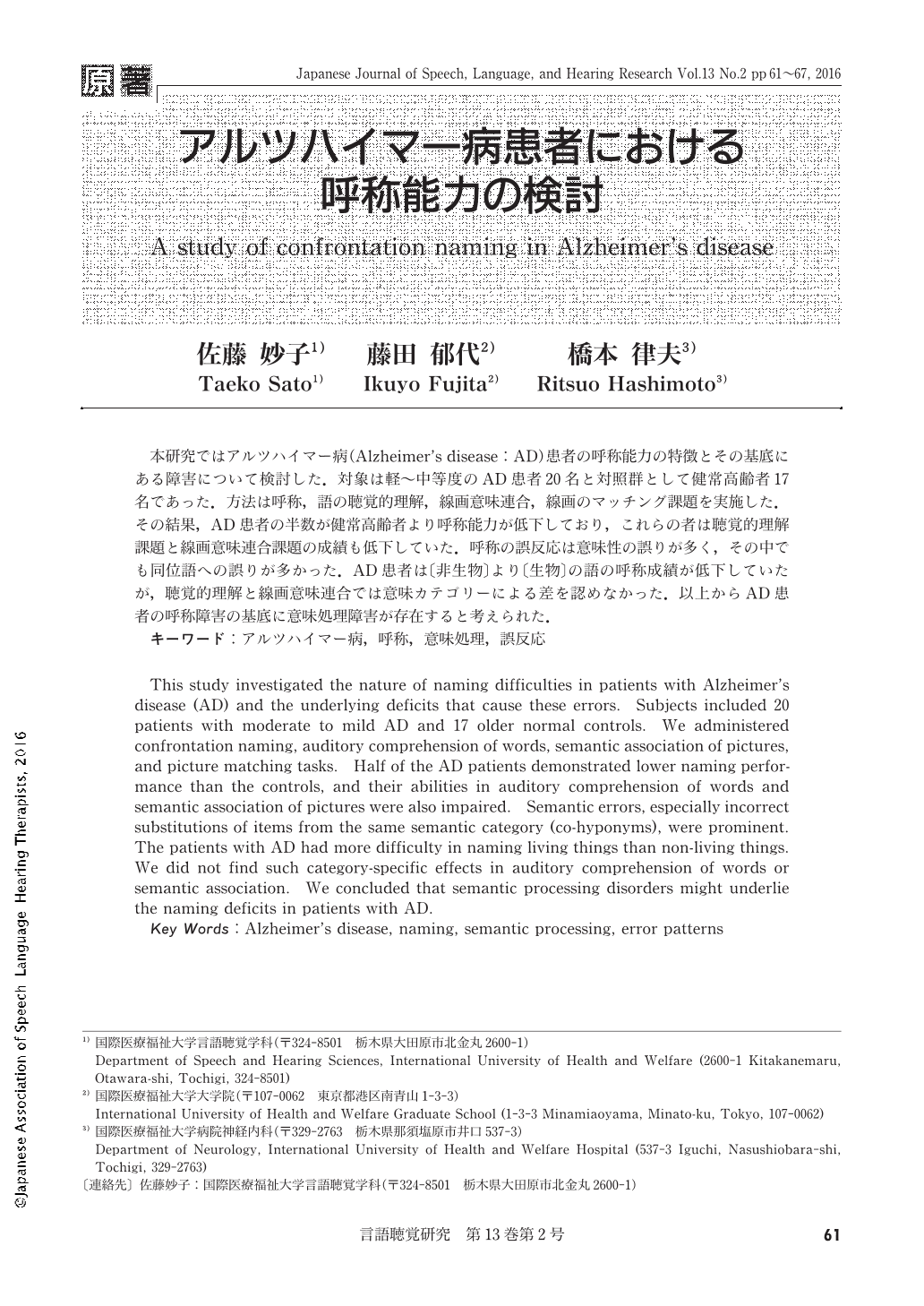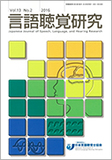Japanese
English
- 有料閲覧
- Abstract 文献概要
- 1ページ目 Look Inside
- 参考文献 Reference
- サイト内被引用 Cited by
本研究ではアルツハイマー病(Alzheimer's disease:AD)患者の呼称能力の特徴とその基底にある障害について検討した.対象は軽〜中等度のAD患者20名と対照群として健常高齢者17名であった.方法は呼称,語の聴覚的理解,線画意味連合,線画のマッチング課題を実施した.その結果,AD患者の半数が健常高齢者より呼称能力が低下しており,これらの者は聴覚的理解課題と線画意味連合課題の成績も低下していた.呼称の誤反応は意味性の誤りが多く,その中でも同位語への誤りが多かった.AD患者は〔非生物〕より〔生物〕の語の呼称成績が低下していたが,聴覚的理解と線画意味連合では意味カテゴリーによる差を認めなかった.以上からAD患者の呼称障害の基底に意味処理障害が存在すると考えられた.
This study investigated the nature of naming difficulties in patients with Alzheimer's disease (AD) and the underlying deficits that cause these errors. Subjects included 20 patients with moderate to mild AD and 17 older normal controls. We administered confrontation naming, auditory comprehension of words, semantic association of pictures, and picture matching tasks. Half of the AD patients demonstrated lower naming performance than the controls, and their abilities in auditory comprehension of words and semantic association of pictures were also impaired. Semantic errors, especially incorrect substitutions of items from the same semantic category (co-hyponyms), were prominent. The patients with AD had more difficulty in naming living things than non-living things. We did not find such category-specific effects in auditory comprehension of words or semantic association. We concluded that semantic processing disorders might underlie the naming deficits in patients with AD.

Copyright © 2016, Japanese Association of Speech-Language-Hearing Therapists. All rights reserved.


